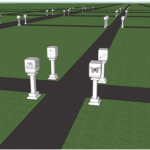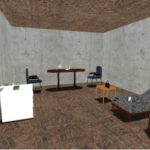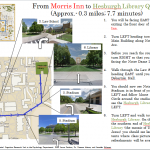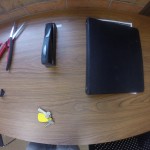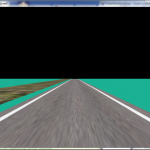Carlson’s Spatial Cognition Lab is currently doing extensive research in a number of different areas. To explore the research being conducted in each area, visit the link below.
Research Areas
Navigation
Our framework for understanding navigation in buildings: Carlson, L. A., Hölscher, C., Shipley, T. F., & Conroy Dalton, R. (2010). Getting Lost in Buildings. Current Directions in Psychological Science, 19(5), 284-289. Using this framework, the Carlson lab is investigating how features of an environment, individual differences in ability and strategy, and an individual’s mental representation of …
Mapping Time on to Space
Mapping Time on to Space Time is an abstract concept that is better understood when mapped onto space. For English speakers, typically a timeline is used that runs horizontally from left (past) to right (future) (Boroditsky, Fuhrman, & McCormick, 2011). However, it is unclear from prior research how the two regions along the timeline are …
Campus Directions
Campus Directions Giving directions can often be a confusing experience, and when the directions are inadequate, they can cause people to become lost in unfamiliar places. We are investigating how people choose which buildings to use as landmarks in their directions, and how directions change based on what is known about the individual receiving those …
Selecting Reference Objects
Selecting Reference Objects How would you describe where the keys are? Reference objects are used when describing the location of nearby objects, and are used to provide helpful descriptions of the locations of other objects. But how do the characteristics of an object influence its selection as a reference object. Work in our lab …
Reference Frames in Impaired Reaching
Reference Frames in Impaired Reaching This research is being conducted in collaboration with the engineering department at Notre Dame, and with the hopes of being able to apply it to the rehabilitation of patients suffering from apraxia. Apraxia is a difficulty reaching to objects that occurs commonly following a stroke. Example of the Brentano …
The Impact of Visual and Cognitive Distractions on Driving Performance
The Impact of Visual and Cognitive Distractions on Driving Performance While driving small mistakes can have fatal consequences, in 2012 alone distractions led to 3,328 deaths and an estimated 421,000 injuries (http://www.distraction.gov/content/get-the-facts/facts-and-statistics.html). Some of the major causes of these mistakes are manual distractions (e.g. eating and driving), visual distractions (e.g. looking at an accident on …


